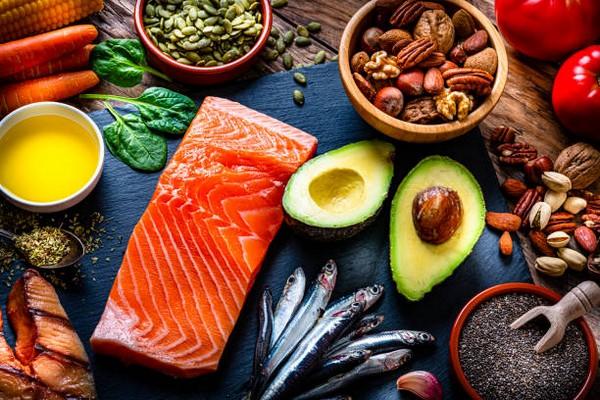Achieving the dual goals of losing weight and gaining muscle requires a well-structured diet that balances nutrient intake, supports muscle growth, and promotes fat loss. This guide will provide specific suggestions on what to eat to achieve these goals effectively.
Understanding the Basics
Before diving into specific foods, it’s important to understand the basics of nutrition and how it affects weight loss and muscle gain.
The Role of Protein
Protein is essential for muscle repair and growth. Consuming adequate protein helps in maintaining muscle mass while losing fat.
The Importance of Carbohydrates
Carbohydrates provide the energy required for intense workouts. They are crucial for muscle recovery and overall performance.
Healthy Fats
Healthy fats support hormone production, including hormones that regulate muscle growth and fat metabolism.
Micronutrients
Vitamins and minerals play vital roles in energy production, muscle contraction, and overall health.
High-Protein Foods
Lean Meats
Chicken Breast: A staple for many fitness enthusiasts, chicken breast is high in protein and low in fat.
Turkey: Another lean meat option, turkey provides ample protein with minimal fat.
Lean Beef: Choose cuts like sirloin or tenderloin for a good balance of protein and low fat.
Fish and Seafood
Salmon: Rich in omega-3 fatty acids and high-quality protein.
Tuna: A lean protein source that is also rich in healthy fats.
Shrimp: Low in calories but high in protein and essential nutrients.
Plant-Based Proteins
Lentils: Packed with protein and fiber, making them excellent for muscle building and weight loss.
Chickpeas: Versatile and protein-rich, chickpeas are great for salads and snacks.
Quinoa: A complete protein source that also provides carbohydrates and fiber.
Dairy and Alternatives
Greek Yogurt: High in protein and probiotics, which support digestion and muscle growth.
Cottage Cheese: Low in fat and high in casein protein, which digests slowly to support muscle repair.
Plant-Based Milk: Options like soy milk provide protein without the lactose found in dairy.
Carbohydrate Sources
Whole Grains
Brown Rice: A complex carbohydrate that provides sustained energy.
Oats: Great for breakfast, oats offer fiber and slow-digesting carbs.
Whole Wheat Bread: Opt for whole grain versions to maximize fiber intake.
Fruits
Berries: Low in calories and high in antioxidants, perfect for a healthy snack.
Apples: Provide fiber and vitamins, ideal for pre- or post-workout.
Bananas: Rich in potassium and carbs, they are great for muscle function and recovery.
Vegetables
Sweet Potatoes: Packed with vitamins and slow-digesting carbohydrates.
Broccoli: Low in calories and high in fiber, supporting weight loss.
Spinach: Rich in iron and other essential nutrients.
Healthy Fats
Nuts and Seeds
Almonds: Provide healthy fats, protein, and fiber.
Chia Seeds: High in omega-3 fatty acids, protein, and fiber.
Flaxseeds: Another excellent source of omega-3s and fiber.
Oils
Olive Oil: Rich in monounsaturated fats, which support heart health.
Coconut Oil: Contains medium-chain triglycerides (MCTs) that can boost metabolism.
Avocado Oil: High in healthy fats and versatile for cooking.
Fatty Fish
Mackerel: Rich in omega-3 fatty acids and high-quality protein.
Herring: Another fatty fish that supports muscle growth and fat loss.
Sardines: High in protein and omega-3s, great for a quick meal.
Micronutrients and Supplements
Vitamins
Vitamin D: Supports bone health and muscle function. Found in fatty fish and fortified foods.
B Vitamins: Crucial for energy metabolism. Found in whole grains, meat, and dairy.
Vitamin C: Essential for collagen production and immune function. Found in citrus fruits and vegetables.
Minerals
Calcium: Important for bone health and muscle function. Found in dairy products and leafy greens.
Iron: Essential for oxygen transport in muscles. Found in red meat, beans, and spinach.
Magnesium: Supports muscle relaxation and energy production. Found in nuts, seeds, and whole grains.
Supplements
Protein Powder: Convenient for meeting protein needs, especially post-workout.
Creatine: Supports muscle growth and improves exercise performance.
Branched-Chain Amino Acids (BCAAs): Help reduce muscle soreness and improve recovery.
Sample Meal Plan
Breakfast
Oatmeal with Berries and Greek Yogurt: Provides protein, carbs, and antioxidants.
Smoothie with Spinach, Banana, and Protein Powder: A quick and nutritious option.
Lunch
Grilled Chicken Salad with Quinoa and Vegetables: Balanced with protein, carbs, and fiber.
Turkey Wrap with Whole Wheat Tortilla and Avocado: Provides healthy fats and protein.
Dinner
Salmon with Sweet Potatoes and Broccoli: A balanced meal with protein, healthy fats, and carbs.
Stir-Fry with Shrimp, Brown Rice, and Mixed Vegetables: High in protein and fiber.
Snacks
Almonds and an Apple: A healthy mix of fats, protein, and fiber.
Cottage Cheese with Chia Seeds and Berries: High in protein and antioxidants.
See Also: What Protein Should You Eat To Lose Weight
Hydration
Importance of Water
Hydration for Muscle Function: Water is essential for muscle contraction and recovery.
Hydration for Metabolism: Adequate water intake supports metabolic processes.
Hydration Tips
Drink Water Regularly: Aim for at least 8 glasses a day.
Include Hydrating Foods: Foods like cucumbers and watermelon help maintain hydration.
Exercise and Diet Synergy
Pre-Workout Nutrition
Carbs for Energy: A small meal with carbs and protein about 1-2 hours before exercising.
Hydration: Drink water before your workout to stay hydrated.
Post-Workout Nutrition
Protein for Recovery: A protein-rich meal or shake within 30 minutes of working out.
Carbs for Replenishment: Include carbs to replenish glycogen stores.
Consistency is Key
Regular Meals: Eat balanced meals every 3-4 hours to maintain energy levels.
Avoid Fad Diets: Focus on sustainable eating habits that you can maintain long-term.
Adjusting Your Diet
Monitoring Progress
Track Your Intake: Use a food diary or app to monitor your food intake.
Adjust as Needed: Based on your progress, adjust your calorie intake and macronutrient ratios.
Listen to Your Body
Hunger Signals: Eat when you’re hungry and stop when you’re full.
Energy Levels: Adjust your diet if you feel fatigued or sluggish.
Conclusion
Eating to lose weight and gain muscle requires a balanced approach that includes high-quality protein, healthy carbohydrates, and fats, along with essential vitamins and minerals. Consistency, hydration, and listening to your body are key to achieving your fitness goals. By incorporating these dietary suggestions and maintaining a regular exercise routine, you can effectively lose weight and gain muscle.


